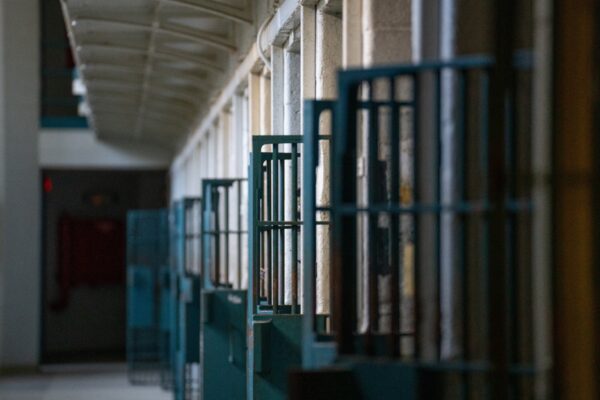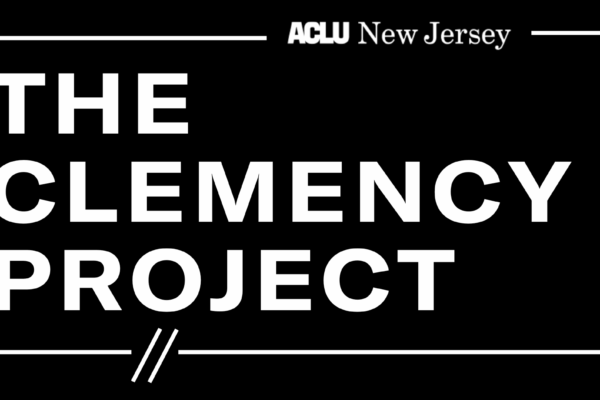From top to bottom, New Jersey’s criminal legal system is riddled with flaws and biases that have fueled mass incarceration for decades. For example, an over-zealous prosecutor might focus more on securing convictions than ensuring fair sentences. Or a person accused of a crime might be pressured to plead guilty and receive a lighter sentence rather than risk going to trial. Or an overworked lawyer might not be able to give a client all the assistance they need.
Additionally, in New Jersey, judges are required to give out certain mandatory minimum sentences in some cases, regardless of the circumstances surrounding the crime. As of January 2023, about three in four incarcerated people in New Jersey – amounting to more than 9,500 people – were sentenced under such rules.
Unfortunately, communities of color are particularly vulnerable to flaws in our criminal legal system. Both implicit and explicit biases among police officers, prosecutors, defense attorneys, judges, and juries have made it far more likely for people of color to be incarcerated. Indeed, right now, New Jersey’s prisons have the most egregious racial disparity in the entire nation.
New Jersey has a moral responsibility to address its history of mass incarceration and racism by offering more opportunities for release. Categorical clemency offers a powerful way to do so. It provides a much-needed check on our flawed criminal legal system. It’s also one of the only tools available to treat people based on their circumstances and social contexts – and to take policy changes into account.
Here’s how: through clemency, executive authorities can offer incarcerated people commutations to shorten their sentences, or pardons to relieve them of all guilt for the crime committed. With categorical clemency, executive leaders can extend consideration for commutations and pardons to groups of people based on shared characteristics.
So, for example, an executive authority might decree that rehabilitated people who were excessively sentenced for a certain type of crime are eligible for release. That enables people to get a chance at freedom independent of the deep, systemic flaws of the criminal legal system. Importantly, with categorical clemency, executive authorities can still review and evaluate individual cases within an eligible group of people.
In New Jersey, the governor has essentially unfettered constitutional authority to grant clemency. Unfortunately, it has been widely underutilized. From 1994 to January 2022, only 105 people received clemency. Meanwhile, governors in other states, like Pennsylvania, Oregon, and Missouri, have issued hundreds or thousands of pardons and commutations in recent years.
Releasing people through categorical clemency would have a profound impact. It would allow families to reunite and communities to heal. People could support their families, work in needed jobs, and strengthen communal bonds. Categorical clemency would also begin to help rectify centuries of racial disparities that have harmed people of color.
Categorical clemency is also widely popular with voters. Nearly seven in ten voters, including majorities of Republicans, Democrats, and Independents, support “ending or shortening the prison sentences of certain individuals in prison if they were to meet selected criteria and determined not to pose a threat to public safety.”
Unfortunately though, when people are released from prison, there is sometimes backlash from uninformed – or politically motivated – people who purport that jails and prisons deter crime. They claim that it’s extreme to release people from prison.
In reality, the extreme thing is to keep thousands upon thousands of New Jerseyans in prison unnecessarily. We must not let fear, self-serving politicians, or people who profit from prisons drive us to perpetuate pro-prison policies that harm families, communities, and incarcerated people.
Research shows time and time again that we can release people without sacrificing public safety. For example, New Jersey’s Public Health Emergency Credit, which freed thousands of New Jerseyans, did not negatively impact public safety.
Additionally, New Jersey effectively ended cash bail in 2017, allowing people to remain at home as they await trial. It has been a resounding success. According to a state study of New Jersey’s bail reform, 99 percent of people who were released pretrial did not commit a serious crime while they were out. And court appearance rates increased, boasting a rate of 97 percent in 2020. Indeed, our bail reform is heralded as a national model for other states seeking to end cash bail.
Given this concrete data, it’s clear that the cries of proponents of “tough-on-crime" policies are misguided. Instead, we should embrace data-driven solutions and a holistic approach to decarceration. And we must utilize every tool available to us.
We can’t afford to delay any longer. Inaction will cost lives, tear more families apart, undermine public health, and hold communities back socially and economically. It’s time to embrace categorical clemency.




